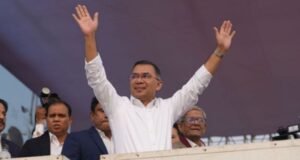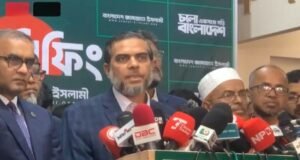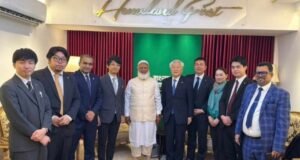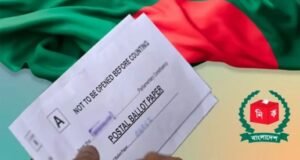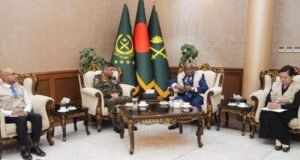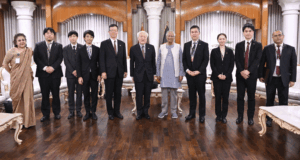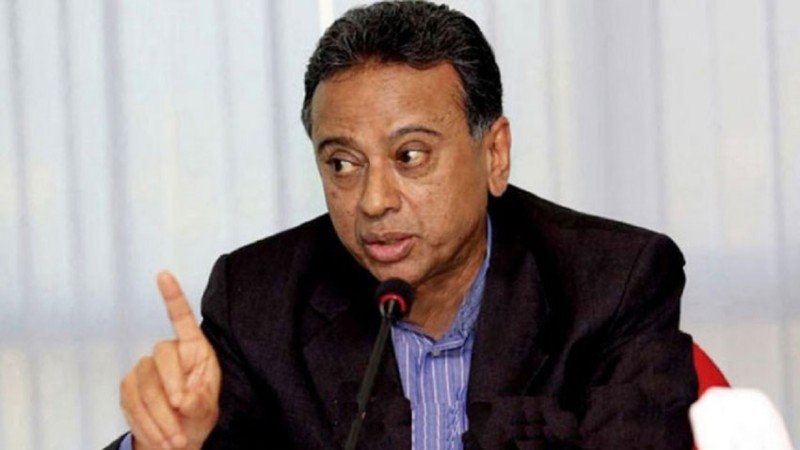
BNP Standing Committee Member Amir Khosru Mahmud Chowdhury on Monday said his party, if returned to power, will abolish the Financial Institutions Division (FID) to grant complete independence to Bangladesh Bank, free from bureaucratic or political interference.
Speaking at the ‘Economic Reform Summit’ at a city hotel, Khosru said BNP is determined to empower the central bank and decentralise authority away from the bureaucracy to ensure transparency and accountability in financial governance.
“BNP is committed to empowering the Bangladesh Bank and decentralising government power from bureaucratic control,” he said.
He alleged that the FID was established to exert political control over state-owned banks and to facilitate corruption through partisan appointments of Managing Directors and board members.
“The division was created to control state banks — to appoint politically preferred individuals as MDs and board members to enable looting and plundering,” he claimed.
Khosru noted that the previous BNP government had abolished the FID, but the Awami League-led administration later reinstated it, undermining financial sector autonomy.
The BNP leader said his party would introduce sweeping reforms to ensure Bangladesh Bank’s independence “goes beyond mere autonomy” — making it truly capable of regulating the economy and attracting investment.
Criticising the recent split of the National Board of Revenue (NBR) into two divisions, Khosru argued that the change would be ineffective “as long as bureaucrats control both parts.” He hinted that BNP has a different plan for the NBR aimed at structural reform and transparency.
On administrative reform, Khosru said a BNP government would not confront the bureaucracy but would reduce its overreach to promote decentralisation and restore policy authority to policymakers.
“Policymaking should rest with elected policymakers — not with bureaucrats,” he added.
During the panel discussion, economists and experts shared their insights on Bangladesh’s economic challenges:
Dr. M Tamim, energy expert, said the country faces a severe energy crisis due to a lack of investment in domestic sources over the past 15 years, adding that “around $30 billion was spent on power plants where corruption opportunities were highest.”
Prof. Rashed Al Mahmud Titumir of Dhaka University said the outgoing government’s growth model increased poverty and unemployment, calling it a “so-called economic miracle” masking deep structural weaknesses. He warned that 30 lakh more people could fall into extreme poverty, with 15 lakh youth unemployed and one in three graduates without a job.
Masrur Reaz, Chairman of Policy Exchange Bangladesh, said the absence of a national investment policy is discouraging long-term investment and creating an imbalance between domestic and foreign capital.
He urged the formulation of a comprehensive investment strategy aligned with trade, export, and import policies.
Other speakers included Planning Commission GED Member Dr. Manzur Hossain, Jamaat-e-Islami USA Spokesman Nakibur Rahman, EPB Vice Chairman Mohammad Hassan Arif, CA professional Snehasish Barua, Counterpoint Executive Editor Jyoti Rahman, and Chaldal CEO Wasim Alim.
Khosru concluded that restructuring the financial system and restoring the central bank’s independence would be among BNP’s top economic priorities if the party forms the next government.
 Weekly Bangla Mirror | Bangla Mirror, Bangladeshi news in UK, bangla mirror news
Weekly Bangla Mirror | Bangla Mirror, Bangladeshi news in UK, bangla mirror news


